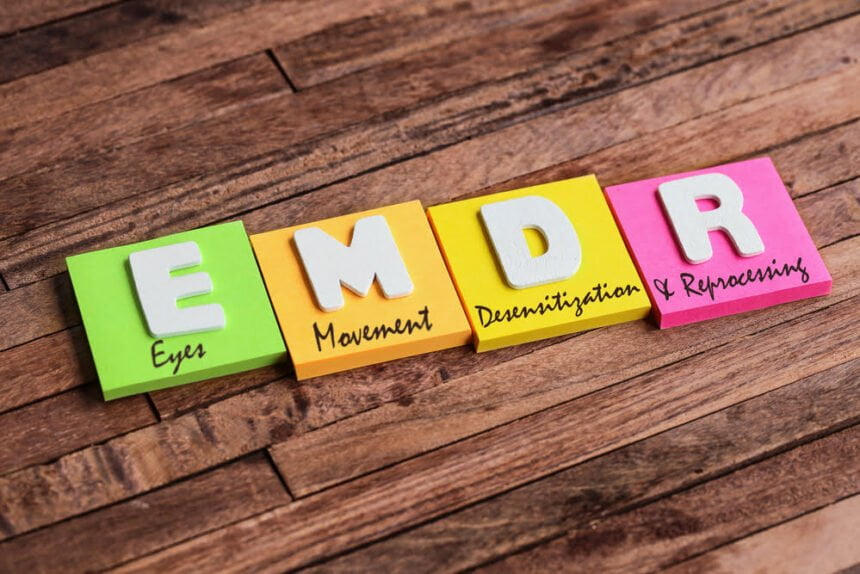EMDR therapy can be used to treat a wide range of psychological conditions, including:
- PTSD
- Anxiety disorders
- Depressive disorders
- Eating disorders
- Substance abuse disorders
PTSD is a disorder that can occur after someone experiences or witnesses a traumatic event, such as a natural disaster, a serious accident, a terrorist act, war/combat, rape, or other violent personal assault. PTSD can lead to severe anxiety, flashbacks, depression, and even physical symptoms like headaches and nausea.
Anxiety disorders are the most common mental illness in the U.S., affecting 40 million adults aged 18 and older. Anxiety disorders include generalized anxiety disorder (GAD), panic disorder, social anxiety disorder (SAD), agoraphobia, and specific phobias. Symptoms of anxiety disorders can include persistent worry, racing heart, sweating, trembling, shortness of breath, and avoidance of situations that trigger anxiety.
Depressive disorders are characterized by persistent sadness and loss of interest in activities that someone once enjoyed. Other symptoms can include fatigue, changes in appetite, sleep disturbances, irritability, and difficulty concentrating. According to the World Health Organization, major depressive disorder is the leading cause of disability worldwide.
Eating disorders are serious mental illnesses characterized by a distorted body image and an unhealthy relationship with food. Anorexia nervosa, bulimia nervosa, and binge-eating disorder are the most common eating disorders. Symptoms of anorexia nervosa can include excessive weight loss, preoccupation with food and calories, and an intense fear of gaining weight. Bulimia nervosa is characterized by episodes of binge eating followed by purging, self-induced vomiting, excessive exercise, or the misuse of laxatives. Binge-eating disorder is characterized by recurrent episodes of overeating, accompanied by feelings of shame, guilt, and distress.
Substance abuse disorders are characterized by a pattern of continued use of alcohol or drugs despite negative consequences. These disorders can lead to addiction and other serious problems like job loss, financial difficulties, relationship problems, and legal issues. In addition, substance abuse disorders can also lead to mental health problems like anxiety and depression.
EMDR therapy can help people with all these conditions by reducing the symptoms and helping them cope with and recover from the events that caused the psychological distress.
EMDR Therapy
What is EMDR therapy? EMDR therapy is a type of psychotherapy used to treat individuals who have experienced trauma. This therapy can help reduce the symptoms of post-traumatic stress disorder (PTSD) and other conditions that can be caused by trauma. EMDR therapy is based on the premise that when we experience a traumatic event, our brains cannot healthily process the information. This can lead to us reliving the event through flashbacks and nightmares, which can be extremely distressing. EMDR therapy uses a combination of eye movements and other forms of stimulation to help our brains process the trauma’s information more healthily. This can help reduce the symptoms of PTSD and other conditions caused by trauma.
If you have experienced a traumatic event and are struggling with the symptoms, you may want to consider seeking out EMDR therapy. This type of therapy can be an effective treatment for PTSD and other conditions caused by trauma. If you are interested in learning more about EMDR therapy, please get in touch with your doctor or mental health professional.
EMDR therapy can be used to effectively treat a wide variety of mental health conditions, including:
- Anxiety disorders
- Depression
- Post-traumatic stress disorder (PTSD)
- Eating disorders
- Obsessive-compulsive disorder (OCD)
- Phobias
EMDR therapy has also been found to help treat:
- Chronic pain
- Performance anxiety
- Stress management
Some research suggests that EMDR therapy may also help treat:
- Autism spectrum disorder
- Bipolar disorder
- Borderline personality disorder
While more research is needed to confirm the efficacy of EMDR therapy in treating these conditions, the therapy has shown promise in reducing symptoms and helping people manage their conditions more effectively.
How common is EMDR therapy?
EMDR therapy is a type of psychotherapy commonly used to treat conditions related to stress and trauma. EMDR therapy can treat some conditions: anxiety, post-traumatic stress disorder (PTSD), depression, and phobias. According to the American Psychiatric Association, EMDR therapy is an effective treatment for PTSD.
What Happens During an EMDR Therapy Session?
During an EMDR therapy session, the therapist will help the client focus on a specific memory or event causing distress. The therapist will then use various techniques to help the client process the memory or event. These techniques may include eye movements, tapping, or other forms of stimulation. The goal of EMDR therapy is to help the client process the memory or event in a less distressing way and to provide relief from the symptoms of stress and trauma.
What are the advantages and disadvantages of EMDR?
Advantages of EMDR therapy include:
- It is an effective treatment for PTSD
- It can be used to treat a variety of conditions related to stress and trauma
- It can provide relief from the symptoms of stress and trauma
Disadvantages of EMDR therapy include:
- The therapist must be properly trained to provide EMDR therapy.
- There is a risk that the client may experience distress during the session if the memory or event is particularly upsetting.
Overall, EMDR therapy is an effective treatment for conditions that are related to stress and trauma. However, it is important to note that the therapist must be trained to provide EMDR therapy. Additionally, there is a risk that the client may experience distress during the session if the memory or event is particularly upsetting.
How does this treatment work?
The therapist will help the client focus on memory or event causing distress. The therapist will then use bilateral stimulation, which can be done with eye movements, sounds, or taps. This goal is to help the client process the memory and reduce negative emotions. This can be a very effective treatment for reducing symptoms of PTSD and other conditions.
Are there any risks associated with this treatment?
EMDR therapy is generally considered safe. However, some potential risks exist, such as feeling worse after the session or re-experiencing the trauma. It is important to discuss these risks with a therapist before starting treatment.
Adaptive Information Processing (AIP) Model
The AIP model is the theoretical framework that EMDR therapy is based. This model suggests that everyone has an innate ability to heal from trauma. However, sometimes the healing process is blocked. The goal of EMDR therapy is to help remove these blocks and allow the person to heal.
3-Phase Treatment Protocol
EMDR therapy typically consists of three phases:
- Assessment: The therapist will assess the client’s needs and history during this phase.
- Preparation: During this phase, the therapist will teach the client some skills that will be helpful during treatment.
- Treatment: During this phase, the therapist will use bilateral stimulation to help the client process the memory or event.
Triggers
A trigger is anything that brings back the memory of the trauma. These triggers can be internal, such as a certain smell, or external, such as a news article. It is important to be aware of triggers to avoid or manage them.
Flashbacks
A flashback is a type of trigger that causes the person to re-experience the trauma. Flashbacks can be very distressing and may make it difficult to function in daily life.
Dissociation
Dissociation is when a person feels disconnected from their body or reality. This can happen during or after a traumatic event. Dissociation can be a coping mechanism for dealing with trauma. However, it can also be very harmful.
Grounding Techniques
Grounding techniques help a person stay present in the here and now. These techniques can help manage flashbacks and dissociation. Some examples of grounding techniques include:
- Focusing on your breath
- Focusing on your surroundings
- Visualizing a safe place
Self-Care
Self-care is very important when dealing with trauma. Finding healthy ways to cope with stress and manage triggers is important. Some examples of self-care include:
- Exercise
- Yoga
- Meditation
- Spending time in nature
EMDR therapy is a type of treatment that can be used to help people heal from trauma. It is based on the AIP model and typically consists of three phases. There are some potential risks associated with this treatment, but it is generally considered safe. EMDR therapy can be an effective treatment for reducing symptoms of PTSD and other conditions.










